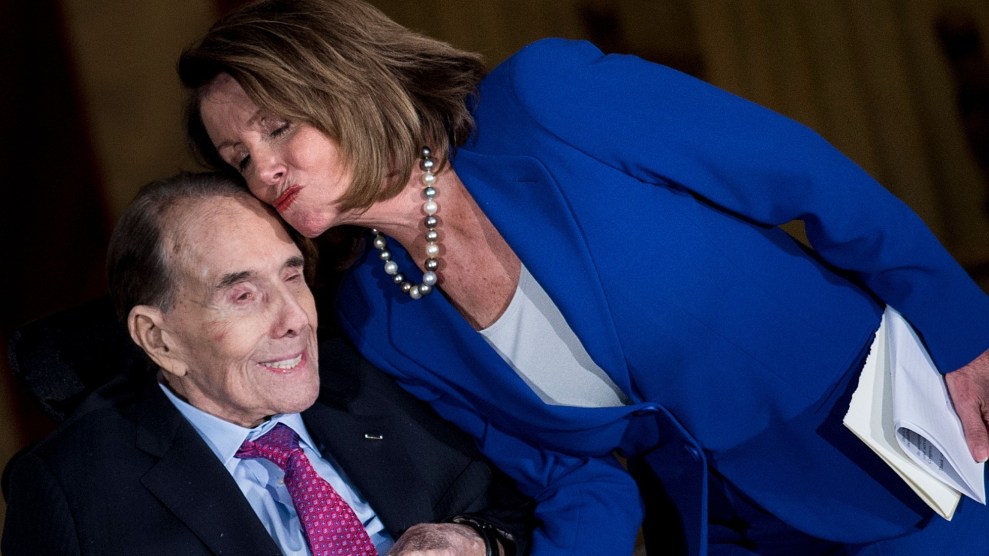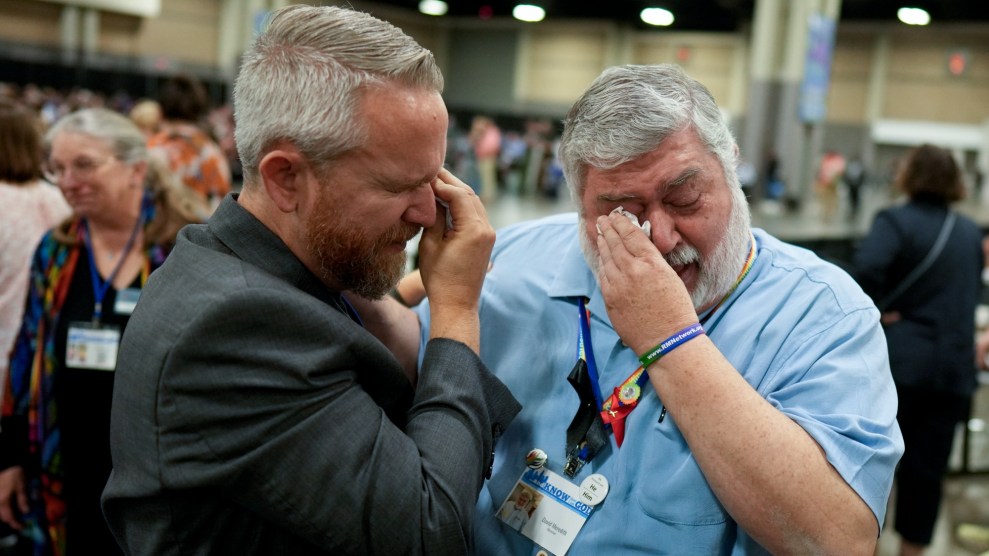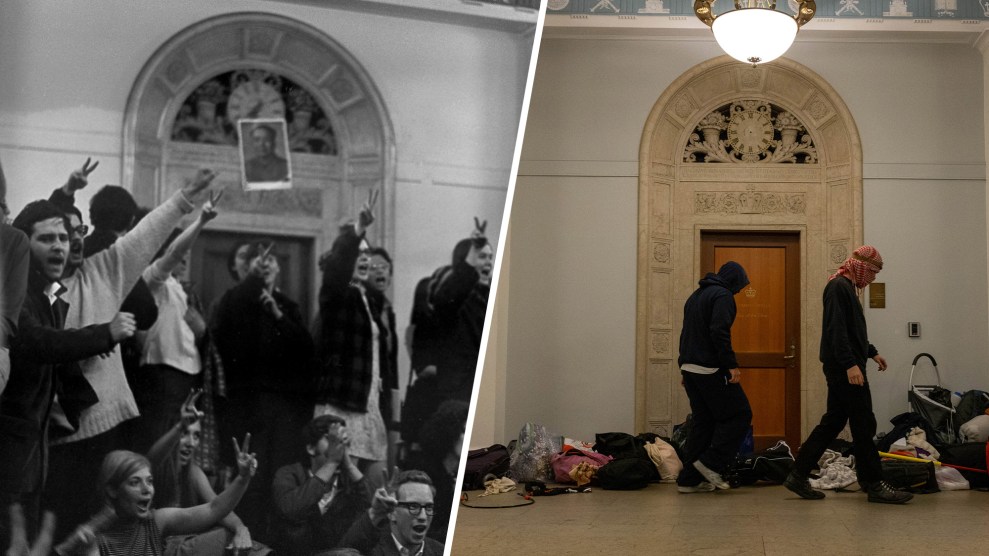
Sen. Bob Dole embraces Rep. Nancy Pelosi during his Congressional Gold Medal ceremony in 2018.Brendan Smialowski/AFP/Getty
Former Republican presidential candidate Sen. Bob Dole, who represented Kansas in Congress for 27 years, died Sunday at the age of 98.
“Senator Robert Joseph Dole died early this morning in his sleep,” the Elizabeth Dole Foundation wrote in a public statement. “He had served the United States of America faithfully for 79 years.”
Dole held a variety of political roles across his decades in Washington: He twice served as majority leader of the Senate, ran for vice president on the Gerald Ford ticket, and mounted three failed bids for the presidency—a record he enjoyed joking about in later years.
January 17, 1997 — White House Medal of Freedom Ceremony: "I, Robert J. Dole, do solemnly swear — oops, sorry wrong speech. I had a dream that I would be here this historic week receiving something from the president, but I thought it would be the front door key." pic.twitter.com/MwgoSbJckg
— CSPAN (@cspan) December 5, 2021
Throughout, he earned a complex reputation as both a harsh adversary—a “partisan hatchet man” who didn’t hesitate to attack opponents like Vice President Walter Mondale—and a skilled bipartisan negotiator who successfully passed landmark legislation, including the Americans with Disabilities Act. Dole, who suffered severe injuries during his World War II service that left him without use of his right arm, championed the ADA alongside Republican cosponsors including Sen. John McCain, as well as prominent Democrats like Sen. Ted Kennedy.
On Sunday, lawmakers from both parties recalled their relationships with Dole. Among them was President Joe Biden, who issued a statement on his half-century-long friendship with the Dole family. He recalled meeting with Dole and his wife, Elizabeth, soon after being sworn in as president, and offering support to their family after Dole’s lung cancer diagnosis—reciprocating the kindness that the Doles had shown the Bidens as their son, Beau, battled cancer.
“Though we often disagreed, he never hesitated to work with me or other Democrats when it mattered most,” Biden wrote of their time in the Senate, praising Dole’s work on the ADA, Social Security reform, childhood nutrition laws, and the creation of a national holiday honoring civil rights leader Dr. Martin Luther King Jr.
Sen. Patrick Leahy (D-Vt.) commemorated Dole as “a giant of the Senate,” saying that “working with him and writing legislation with him are among my fondest memories” of his years as a senator. Senate Minority Leader Mitch McConnell (R-Ky.) praised Dole’s “profound patriotism,” “conservative victories,” and “bipartisan achievements.”
Onlookers also remembered Dole in conjunction with comedian Norm Macdonald, who famously portrayed Dole on Saturday Night Live, and who himself died aged 61 in September. In one of those portrayals, the real Dole gamely joined Macdonald’s fake one for a skit poking fun at his unsuccessful presidential bids, and Dole even issued his own tribute to the comedian after Macdonald’s passing:
“Norm @normmacdonald was a great talent, and I loved laughing with him on SNL. *Bob Dole* will miss Norm Macdonald.” pic.twitter.com/gPsdyJ5tS9
— Senator Bob Dole (@SenatorDole) September 14, 2021















